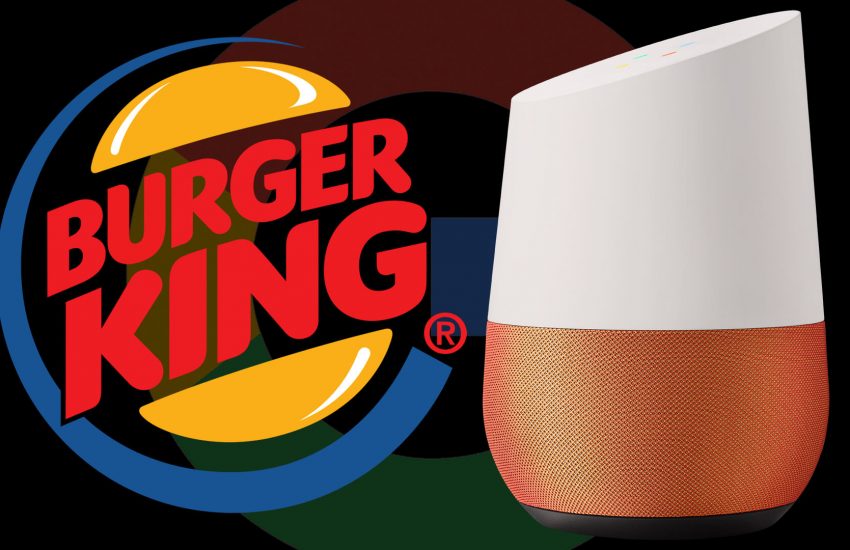
At a time when risky ads can cause a backlash (e.g. Pepsi), Burger King just did something ingeniously (or annoyingly) calculated to create buzz. And it worked.
The company created a TV spot (below) that tries to invoke Google Home — for those that have them. Near the end of the commercial the camera zooms in close and the actor playing a BK employee says, “OK Google, what is the Whopper burger?”
If there’s a Google Home nearby, it lights up. But it doesn’t answer because Google apparently got wind of the ad and shut down the response, which was supposed to be a description of the ingredients as listed in the Wikipedia page about Whoppers. (There’s some evidence that BK’s agency or employees edited Wikipedia before the commercial started running to game the answer.)
The real objective here was not to light up a bunch of Google Home devices but to get a bunch of earned media coverage from the stunt. If the real target of the campaign were the at-home audience, why wouldn’t it have gone after Alexa?
Echo/Alexa is approaching or has exceeded 10 million in device sales, while the data suggest Google has sold fewer than 1 million Home devices. Of course, Google Home often responds more effectively to general knowledge questions. (Google was reportedly not involved in the creation of the ad.)
There’s considerable speculation about how Google might translate its ad model into the screen-free, virtual assistant realm. A test promotion (not a paid ad) for Beauty and the Beast a couple of weeks ago saw a significant reaction and discussion online.
New Beauty & the Beast promo is one way Google could monetize Home. cc: @gsterling@dannysullivanpic.twitter.com/9UlukSocrO
— brysonmeunier (@brysonmeunier) March 16, 2017
It was therefore shrewd of Burger King or its agency to piggy back on that episode to generate buzz for Burger King. As of this writing, the commercial has already been watched about 75,000 times on YouTube in just a matter of hours and is No. 3 on YouTube’s list of trending videos. By being essentially “first” to formally do something like this, the company grabbed lots of headlines and coverage. But nobody can follow with a similar promotion without being criticized as a creative copycat.
While the “involuntary” dimension of the ad is potentially invasive or annoying, it points to some interesting second device use cases involving virtual assistants. For example, conscious of the presence of these devices in the kitchen, living or family room, a future TV spot might suggest that users “search” for X on Google Home or tap into Y skill on Alexa.
Given that the ad will play on national TV this evening it might also help generate some additional sales for Home. Indeed, Google may want to reconsider its attitude and work with brands to figure out clever and useful ways to integrate Home into other types of advertising — as an extension or attribution tactic.
About The Author

